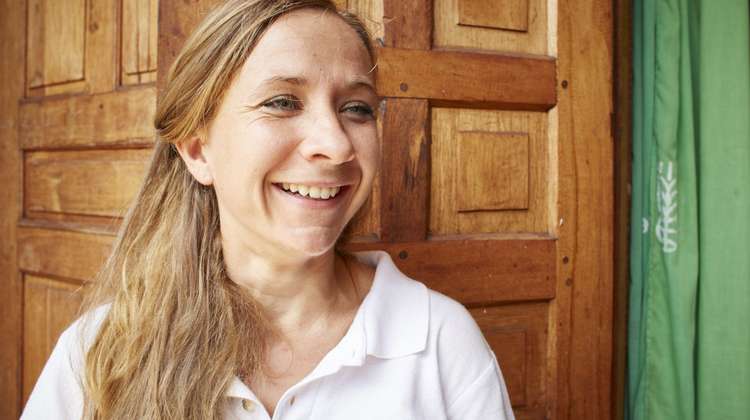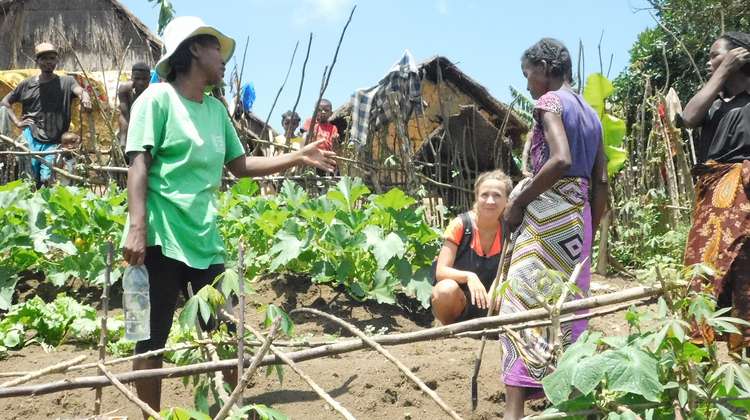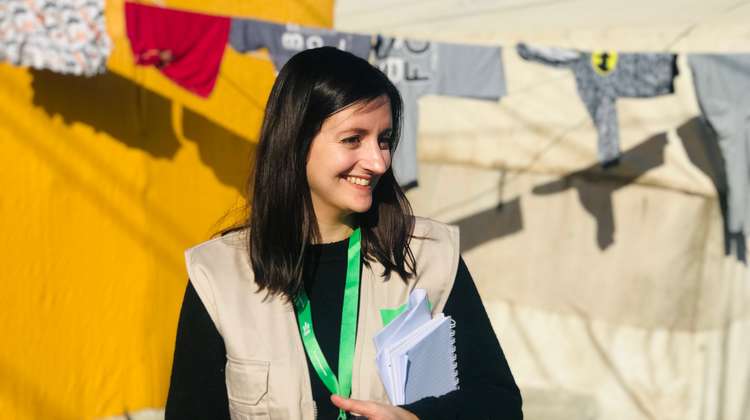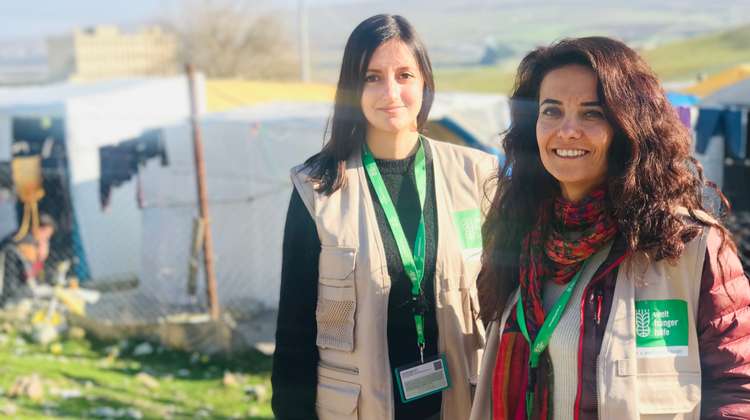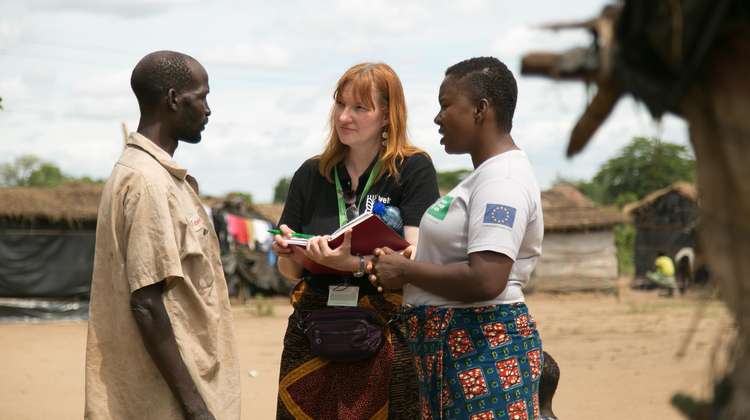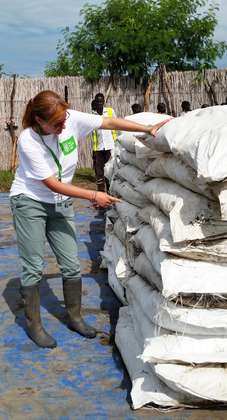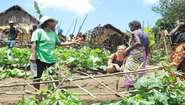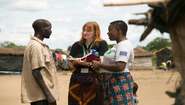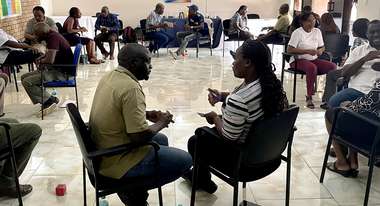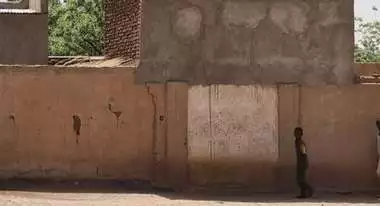Humanitarian Aid Workers Need Better Protection
The poor security situation in many countries is making work more difficult for relief organisations, and frequently making it difficult to access people in need.
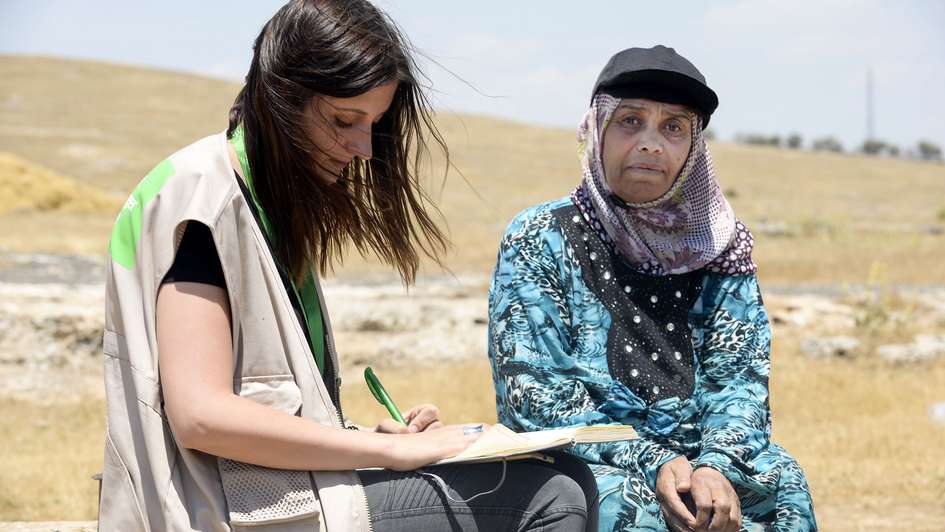
Although the need for assistance is increasing worldwide, people providing humanitarian assistance often become victims of attacks and kidnapping. On the occasion of World Humanitarian Day on 19 August, Welthungerhilfe would like to draw attention to this fact.
Dangerous Working Conditions
“The working conditions for our staff are becoming increasingly dangerous. This means that the basic principles of international humanitarian law and the Geneva Conventions are more relevant than ever, 70 years after they were passed. One of the most important rules is that humanitarian workers and civilians should not be made the target of attacks, and that there should be criminal penalties when this rule is breached. The German federal government must continue to use its seat on the UN Security Council to counter the erosion of international humanitarian law, and to demand that it should be observed by all parties to conflicts", says Mathias Mogge, General Secretary of Welthungerhilfe.
There were more than 400 acts of violence against humanitarian aid workers in 2018, causing 131 fatalities. According to this year's Aid Worker Security Report, most attacks took place in South Sudan. Despite all adversities, Carolin Schmidt remains motivated. “The year-long war has caused a lot of destruction in South Sudan, leaving deep wounds. What drives me is helping to give people prospects again - even if our options are limited, in view of the large number of people in need. I think that we can help to counteract conflicts by reducing frustration”, explains the Welthungerhilfe Programme Coordinator for South Sudan. In 2018, Welthungerhilfe's assistance reached 517,000 people.
#WomenHumanitarians: Focus On Female Humanitarian Aid Workers
Every year on 19 August, World Humanitarian Day honours the work of humanitarians. In 2019, the focus is on women, under the motto #WomenHumanitarians. Over 200 international humanitarians work for Welthungerhilfe abroad, and about a third of them are women.
World Humanitarian Day began as a reaction to the terror attack on the UN headquarters in Baghdad (Iraq) on 19 August 2003, in which 22 people died.
We can provide texts, statements and images from female colleagues for your reports. We will be happy to arrange interviews for you with these and other female colleagues:
- Carolin Schmidt, Programme Coordinator in South Sudan
- Jessica Kühnle, Communications Expert for Syria, Turkey and Lebanon
- Sandra Schuckmann-Honsel, Member of the Emergency Response Team, which is deployed around the world in disaster situations.
Download Press Photos
Usage note: Please note that the pictures may only be used in a Welthungerhilfe context and may not be passed on to third parties. Images must bear the credit copyright "Photographer"/Welthungerhilfe. No long-term archiving. Please delete pictures after use!
Welthungerhilfe is one of the largest private aid organisations in Germany; politically independent and non-denominational. It is fighting for “Zero Hunger by 2030”. Since it was founded in 1962, more than 9,300 overseas projects in 70 countries have been supported with 3.71 billion euros. Welthungerhilfe works on the principle of empowering people to help themselves: from rapid disaster relief to reconstruction and long-term development cooperation projects with national and international partner organisations.





